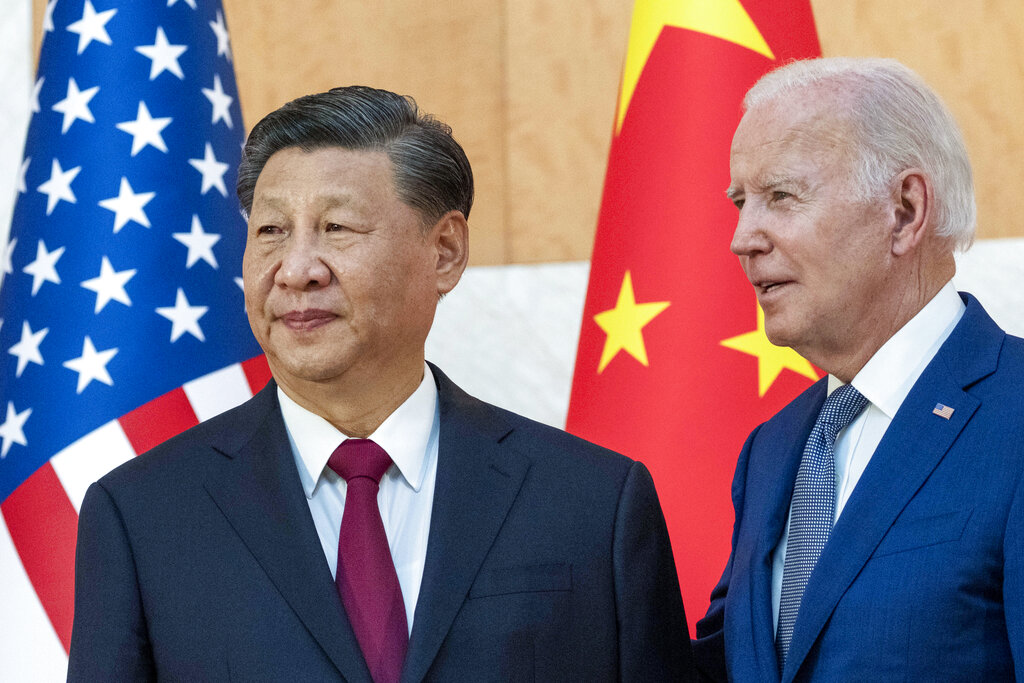
China said U.S. President Joe Biden had made a “public political provocation” by referring to his Chinese counterpart Xi Jinping as a “dictator,” as fresh tensions flared in bilateral ties just days after meetings to stabilize relations.
Chinese Foreign Ministry spokeswoman Mao Ning called the US leader’s comments “irresponsible” at a regular press briefing in Beijing on Wednesday. “It is against the basic facts and diplomatic protocols, seriously violates China’s political dignity and amounts to public political provocation,” she added.
Read More: The Making of the Xi Jinping Personality Cult
Biden told a crowd at a California fundraiser on Tuesday the Chinese leader had been blindsided by an alleged spy balloon floating over the U.S. earlier this year, saying “he didn’t know it was there.” “That’s what the great embarrassment for dictators—when they didn’t know what happened,” Biden said.
That debacle caused U.S. Secretary of State Antony Blinken to cancel a trip to Beijing, and sent the U.S.-China relationship into a tailspin. Blinken’s rescheduled trip this week was praised by both sides and appeared to have stabilized ties, laying the groundwork for a potential meeting between Biden and Xi.
The U.S. president’s comments—and China’s response—show how fragile ties remain between the world’s largest economies, which have fundamental disagreements on issues spanning human rights and technology to trade and weapons sales to Taiwan. The talks in Beijing did not appear to yield a breakthrough on the top U.S. priority: restoring military-to-military communications.
Following his visit, Blinken said he believed the balloon episode was closed. Chinese Foreign Minister Qin Gang is planning to visit Washington in the coming months, while other top American officials are also expected to travel to China, including Treasury Secretary Janet Yellen and climate envoy John Kerry. It’s unclear whether Biden’s remarks will impact those plans.
It isn’t the first time a seemingly unscripted Biden comment has complicated Washington’s relationship with Beijing. Biden or his aides have needed to clarify the U.S. President’s remarks on Taiwan on at least four occasions in recent years, including over his description of the island as “independent”—China’s oft-stated red line for an invasion of the territory it claims as its own.
China has also been alarmed by Biden’s repeated statements the U.S. would defend Taiwan if attacked, appearing to go beyond a strategy of being deliberately vague about how Washington would respond.
The Chinese Foreign Ministry accused the U.S. of tampering with its political promises on Taiwan on Monday, hours after after Xi met with Blinken, showing the limits to resolving differences between the nuclear-armed superpowers.
More Must-Reads from TIME
- L.A. Fires Show Reality of 1.5°C of Warming
- Home Losses From L.A. Fires Hasten ‘An Uninsurable Future’
- The Women Refusing to Participate in Trump’s Economy
- Bad Bunny On Heartbreak and New Album
- How to Dress Warmly for Cold Weather
- We’re Lucky to Have Been Alive in the Age of David Lynch
- The Motivational Trick That Makes You Exercise Harder
- Column: No One Won The War in Gaza
Contact us at letters@time.com